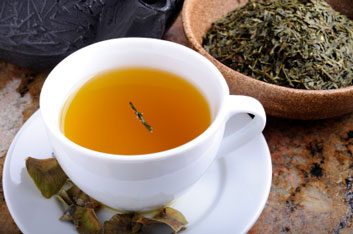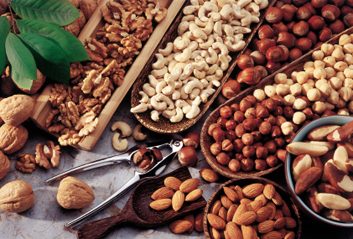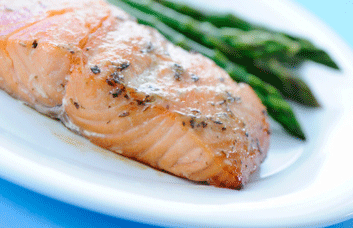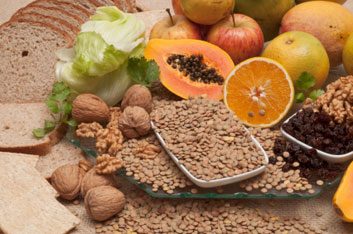
Protect yourself from heart disease
Death rates from cardiovascular disease (CVD) have been falling in Canada since the 1950s. And our death rate from stroke is one of the lowest in the world. That’s the good news. The bad news: It’s still a major killer for Canadians. The Heart & Stroke Foundation says that someone dies every seven minutes from heart disease or stroke. CVD accounts for 28 percent of male deaths and almost 30 percent of female deaths-it’s the leading cause of death for women. (Yes, more woman die from it than from cancer.) But there are changes you can make to limit your risk and get a big dose of prevention. We’ve found 11 of them-and they’re all pretty painless.

Savour at least two cups of tea each day
Green is better than black, but any tea is good. A Dutch study found that only 2.4 percent of 5,000 healthy Rotterdam residents who drank two or more cups of tea a day had a heart attack within six years, compared with 4.1 percent of those who never drank tea.

Eat dark chocolate several times a week
Several studies suggest that dark chocolate is good for your heart. The beneficial effects are probably due to compounds in chocolate called flavonoids, which help the arteries stay flexible. Other properties of dark chocolate seem to make arteries less likely to clot and prevent the “bad” LDL cholesterol from oxidizing, making it less likely to form plaque. Go for 70 percent or higher of cocoa content. And avoid milk chocolate, which is higher in butterfat and so tends to raise cholesterol.

Have a beer or glass of red wine once a day
A study published in the Journal of Agricultural and Food Chemistry found that men who drank one beer a day for a month lowered their cholesterol levels, increased their blood levels of heart-healthy antioxidants and reduced their levels of fibrinogen, a protein that contributes to blood clots. And red wine is even better-it is up to 10 times higher in flavonoids, which are believed to be responsible for much of wine’s beneficial effects on boosting levels of “good” HDL cholesterol.

Get just the right amount of sleep
A Harvard study of 70,000 women found that those who got less than seven hours of sleep per night had a slightly higher risk of heart disease. Researchers suspect that lack of sleep increases stress hormones, raises blood pressure and affects blood sugar levels. Keep your overall sleeping time to no more than nine hours, though. The same study found that women sleeping more than that had a slightly increased risk of heart disease.

If you snore, see your doctor
If you hear yourself snoring (or if your partner has been kicking you under the covers a lot lately), make an appointment with your doctor. You may have sleep apnea, a condition in which your breathing stops hundreds of times throughout the night. It can lead to high blood pressure and other medical problems, and even increase your risk of a heart attack or stroke.

Go nuts!
Just 45 grams of nuts a day (about 1/3 cup) can reduce your risk of cardiovascular disease due to their “good” fats. But you shouldn’t have much more than that amount, so avoid munching mindlessly-especially if the nuts are salted. Instead, incorporate them into meals or snacks. Two ideas: Crush unsalted nuts and use them to coat fish or chicken, then bake. Or throw crushed nuts into a smoothie.

Eat more fish
Have it grilled, sautéed, baked or roasted. A study published in the Journal of the American Medical Association found that women who ate fish at least once a week were a third less likely to have a heart attack or die of heart disease than those who ate fish only once a month. Other studies show similar results for men.

Boost your fibre intake
Harvard scientists found that women who ate 23 grams of fibre a day-mostly from cereal-were 23 percent less likely to have heart attacks than those who consumed only 11 grams of fibre. In men, a high-fibre diet slashed the chances of heart attack by 36 percent.

Become a biker
German researchers asked 100 men with mild chest pain, or angina, to either exercise for 20 minutes a day on a stationary bike or undergo an artery-clearing procedure called angioplasty. A year later, only six of the bikers had suffered a heart attack, stroke or other problem compared to 21 men who chose the angioplasty. (If you have angina, talk to your doctor before starting any exercise program.)

Eat an orange every day
Or drink a small glass of orange juice. Oranges are a great source of vitamin C. Studies suggest that diets high in this vitamin may reduce your risk of stroke, especially if you smoke. Brussels sprouts, strawberries, broccoli and red peppers are some other excellent sources of C.

Have more sex
It counts as physical activity, which, of course, we all know is good for our hearts. That may be why University of Bristol researchers found that men who engage in sex at least twice a week are less likely to have a stroke or other cardiovascular problems than men who have it less often. Women stand to benefit, too-perhaps in more ways than one.
Related:
• 5 ways to make your heart live longer
• 7 foods that help prevent heart disease
• Quiz: How healthy is your heart?
